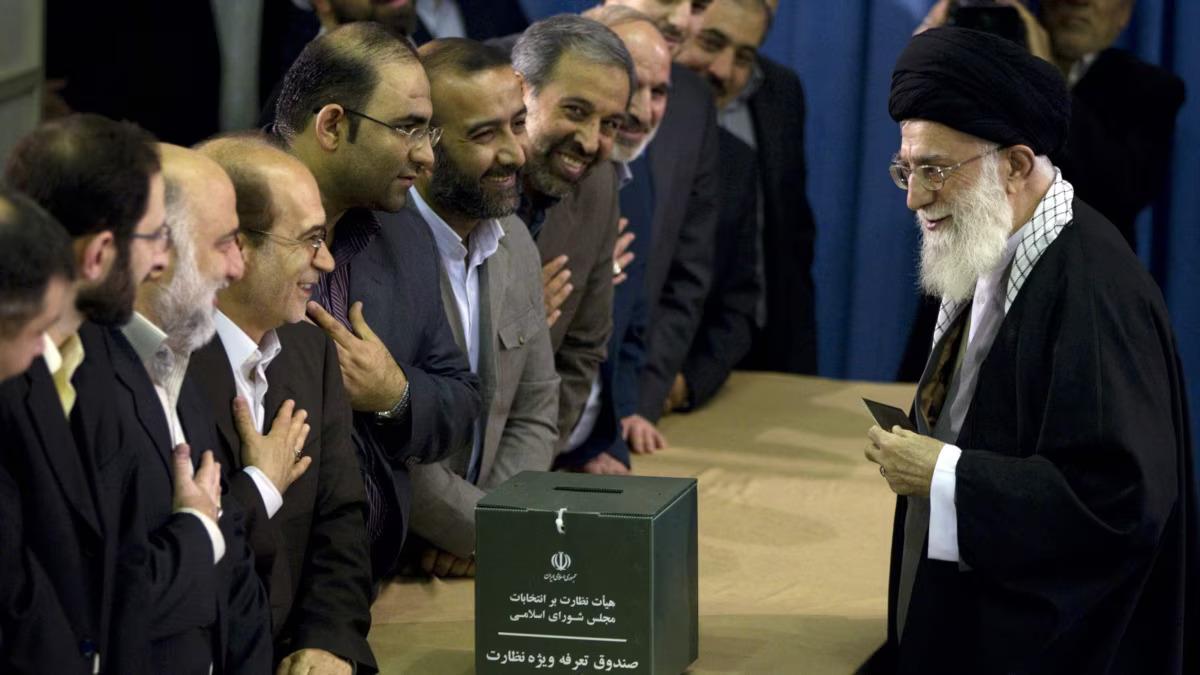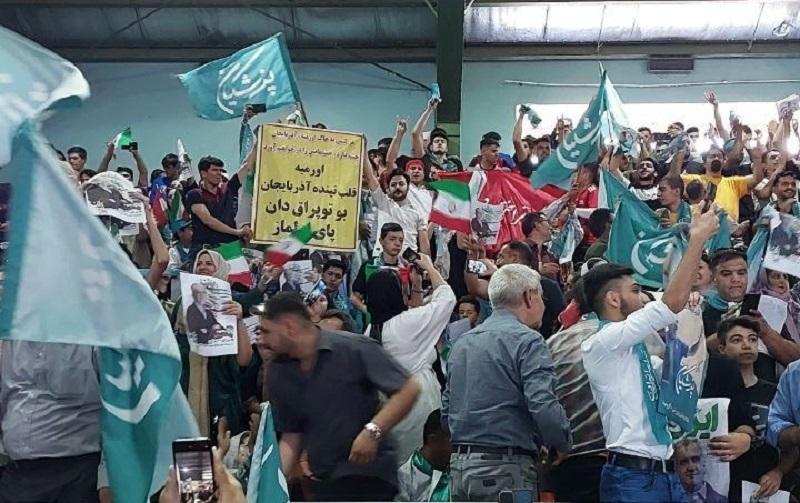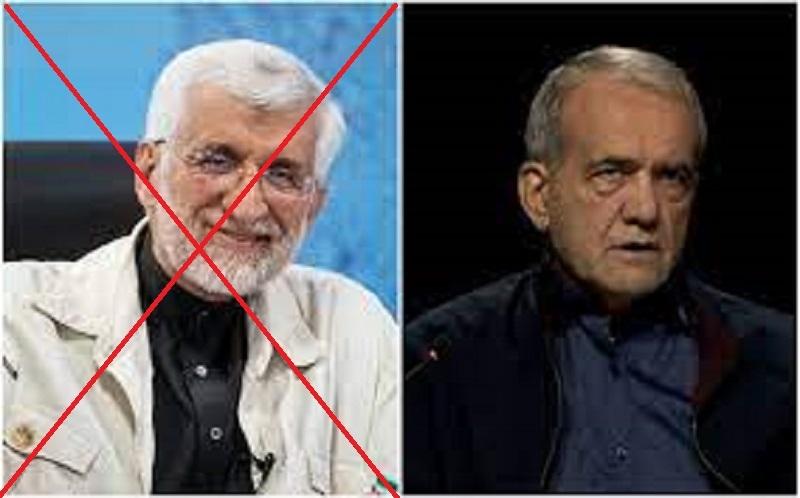Q&A: Iran's runoff presidential elections amid historic low turnout Reformists vs. hardliners
As Iran prepares for its presidential run-off on July 5, the electoral landscape is defined by stark contrasts between reformist-moderate aspirations and hardline ideologies. This pivotal election follows a first round marked by historical lows in voter turnout and significant public skepticism. The contenders, Saeed Jalili and Massoud Pezeshkian embody divergent visions for Iran's future, reflecting broader societal disillusionment and calls for change amidst enduring political challenges.
Q: Who are reformists & principlists?
A: Reformists or Moderates are individuals who believe in reforming the Islamic Republic while maintaining the status quo. Principlists or Fundamentalists are often referred to as hardliners by Western media.
Q: What happened in the first round of the election?
A: The first round of the presidential elections took place on June 28. According to officials, 40 percent (24.5 million) out of the 61.5 million eligible voters participated, with 1.05 million invalid ballots. This marked the lowest turnout in the Islamic Republic’s forty-five-year history.
Q: What did Supreme Leader Ayatollah Ali Khamenei say about the turnout?
A: On July 3, Supreme Leader Ayatollah Ali Khamenei acknowledged the election turnout as “lower than expected” and attributed it to “several factors” without mentioning any. He expressed hope that the turnout for the second round would be significant and a source of pride for the Islamic Republic.

Q: Why is there skepticism about the reported turnout numbers?
A: There is a conspiracy theory that the actual numbers were lower and that authorities tripled them to show higher turnout. The fact that 60 percent did not vote signals the populace’s disillusionment with the clerical establishment.
Q: What regions had meager turnout?
A: Lower turnout occurred in at least a dozen provinces, including Kermanshah, Kurdistan, and Sistan-Baluchistan, all of which were epicenters of the 2022 Women, Life, Freedom uprising.
Q: Who are the candidates in the run-off?
A: The top two candidates are Saeed Jalili, a hardliner and the Supreme Leader’s representative in the Supreme National Security Council, and Massoud Pezeshkian, a reformist and member of parliament representing Tabriz. Jalili received 38.6 percent of the vote, while Pezeshkian received 42.5 percent.
Q: Will Iranians boycott the run-off?
A: During the first round, many Iranians boycotted the election, expressing their rejection of the Islamic Republic. Some who boycotted are considering voting for Pezeshkian in the run-off to prevent a Jalili presidency. Others continue to call for a boycott, believing that neither candidate represents a true solution.
Q: What are the arguments for and against participating in the run-off?
A: Some believe voting for Pezeshkian, the “lesser evil,” could marginally improve the situation. Others argue that both candidates are “two halves of the same apple,” as the key decisionmaker is the Supreme Leader. Activists calling for a boycott emphasize that a Jalili presidency could isolate the regime further, potentially leading to its downfall.
Q: What did Pezeshkian say about the low turnout?
A: During a recent debate, Pezeshkian acknowledged the low turnout, stating, “The pillar of society is its people. When 60 percent do not come to the polls, there is a problem, people have a problem with us.”
Q: What do the polls say about the run-off?
A: It is widely believed that Pezeshkian was allowed to run to stimulate higher voter turnout and lend legitimacy to the clerical establishment. Surveys find that 44.7 percent of eligible voters will partake in the run-off, with Pezeshkian projected to win with 51.1 percent of the vote, while Jalili is expected to receive 46.6 percent.
Q: How has the diaspora reacted to the election?
A: On June 28, anti-regime members of the diaspora, including human rights activists, gathered at the Islamic Republic of Iran’s embassies in various Western cities to protest the election. Some incidents involved harassing voters, highlighting the deep divisions and strong sentiments within the Iranian community abroad.
In conclusion, the run-off election between Saeed Jalili and Massoud Pezeshkian on July 5 is set against a backdrop of significant political disillusionment and calls for boycott, reflecting the broader tensions within Iran’s electorate.
Candidates:
Q: Who is Massoud Pezeshkian?
A: Born in 1954 into a civil servant family in West Azerbaijan, Massoud Pezeshkian is not only a veteran of the Iran-Iraq War but also a distinguished heart surgeon trained at Tabriz and Tehran universities. His career spans across various significant roles in both academia and politics.
Pezeshkian served as the dean of Tabriz University of Medical Sciences from 1994 to 2000 and later held the position of deputy health minister from 2000 to 2001. During the presidency of Mohammad Khatami, he assumed the crucial role of Minister of Health from 2001 to 2005, advocating for healthcare reforms.

Beyond his medical and administrative roles, Pezeshkian has been a member of the High Council for Cultural Revolution and has represented his constituency in parliament since 2008, serving five consecutive terms. His parliamentary tenure included a notable term as deputy speaker.
Despite his long-standing political career, Pezeshkian's presidential aspirations faced hurdles. He registered for the 2013 presidential election but withdrew from the race. In 2021, the Guardian Council, a vetting body, disqualified him from participating in the presidential election, a decision often perceived as politically motivated.
As the sole Azeri candidate in the current presidential race and representing the reformist-moderate camp, Pezeshkian has demonstrated his potential to garner substantial support and emerge as a strong contender.
Q: Who is Saeed Jalili?
A: Jalili came second in the first round of the presidential polls. At 21, he lost his right leg in the Iran-Iraq War (1980-1988) and served as a member of the Islamic Revolution Guards Corps (IRGC).
He joined the foreign ministry in 1987, eventually becoming the deputy head of the Europe and America Bureau. In 2002, he earned a doctorate in political science from Imam Sadiq University, a training ground for the political elite of the Islamic Republic.
Jalili has held several significant positions, including being a member of the Office of the Supreme Leader (2000-2007), Secretary of the Supreme National Security Council, and Iran’s chief nuclear negotiator (2007-2013).
Known for lacking a charismatic personality, Jalili’s tirades during the nuclear talks significantly contributed to the impasse in the negotiations. He has also served since 2013 on the Expediency Council, a body comprising three dozen senior regime members that is the final arbiter between the Guardian Council and the parliament.

In the 2013 presidential elections, he finished third with 11 percent of the vote. Disputes with other conservatives led him to sit out the 2017 presidential race. Although he was one of the seven candidates approved by the Guardian Council for the 2021 presidential election, he withdrew two days before the election in favor of Raisi, the eventual winner.
Jalili is reportedly close to Supreme Leader Ayatollah Ali Khamenei, and his brother, Vahid Jalili, has served as the Islamic Republic of Iran Broadcasting Organization (IRIB) chief for cultural affairs and policy evolution.








